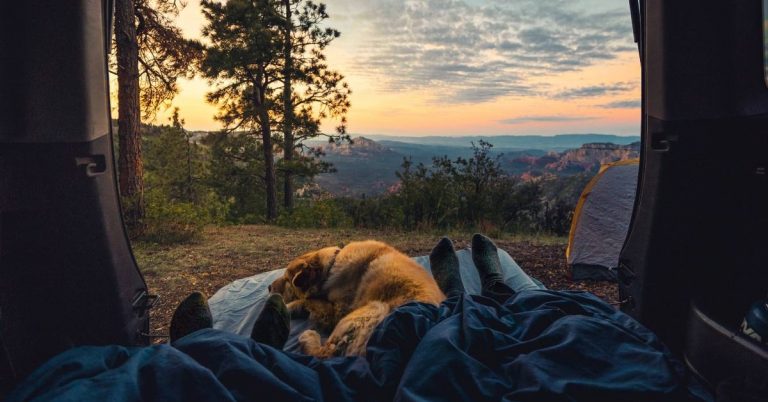Your ultimate camping road trip should be an amazing adventure for you, your friends, and your family. But it’s always a good idea to make a plan before the trip starts. Most people start collecting gear before the trip; unless you are renting or borrowing, be sure you have a safe place to store that gear when you’re not using it.
Collect Your Camping Gear
Camping usually requires many of the same elements. You need tents, packs, sleeping gear, rain gear, food, and cooking supplies. If you’re planning an adventurous trip, then the gear you need for your outdoor sport of choice should also be included. Some people bring a cooler because they set up their camp near their car, and other people bring cooler bags that are easier to carry.
Emergency items, such as a simple crank radio that you can use to get weather reports and a first-aid kit are on many lists. Lots of people also bring a GPS and CB radio so that you can reach people like park rangers if you get stuck. It can be smart to bring your cell phone if you think it will get service. If you don’t have charging capabilities, store it in a weatherproof location where it won’t overheat and keep it off until you need it.
Make a checklist so you don’t forget anything you might need.
Prepare Your Vehicle
When you are driving on this ultimate road trip, you need to prepare your vehicle for the trip. Consider bringing extra gas tanks that might attach to the side of the vehicle or blankets that you can use in the car if it gets cold. Put snacks, water, and food in the car for everyone to eat while you are driving. Before taking a long trip, it’s a good idea to get a tune-up and make sure your tires, brakes, and cooling system are up to the task.
Get a Map for the Trip
Once you start planning the trip, it can be helpful to create a map of your expected route. While many people will count on digital versions of this, cell service can’t always be counted on to show where you are in remote areas. It can be smart to write down the directions that you need for the trip and keep the map in the car so you can follow along.
If you plan to hike on your trip, get a map of the area you plan to hike. Carry the map with you when you start hiking and give a copy of your route to the local ranger station and some friends who can alert authorities if you don’t check in.
Pack Proper Clothing
You’ve collected your gear, made a map, and planned your itinerary. Don’t forget the proper clothes for the trip! Every hiking and camping trip is different, so consider the area, terrain, and season. For example, if you hike in the California highlands in the summer, it can still get cold at night. It’s so humid in the Southeast that it will still be hot at night in the summer. Layers are the best choice for adding or subtracting the right amount of clothing to keep you comfortable. Remember that you will be working hard, and breathable fabrics will help keep you dry.
If you’re hiking or camping at high elevation, it’s going to get cold at some point. Check the weather to see how much rain you’ll get so you know if you should bring rain gear. Dry your shoes every night to avoid getting blisters, and don’t skimp on the clean socks; they’re a staple of smart hiking gear.
Also, if you’re hiking at elevation, bring snow gear. You never know when you will get snow, and you don’t want to be stuck without the proper equipment.
Bring sunscreen to prevent sunburns and a hat to protect your face. Remember to apply it to the lower parts of your face in areas with snow and water. The sun can reflect off those surfaces and burn the underside of your nose and chin. Plus, a pair of sunglasses will help you keep the sun out of your eyes.
Permits and Restrictions
If you are planning on hunting, bring your hunting license. If you’re camping in a restricted area, be sure to obtain and bring along the permit. Check local fire prevention restrictions before you head out; you may or may not be able to burn firewood.
You can use the tips above to collect the gear you need. When you’re done, store your camping accessories with us and pull it all out when it is time for your next trip. We’ll keep your camping equipment safe until you’re ready for your next opportunity to have a lovely trip with friends and family.


